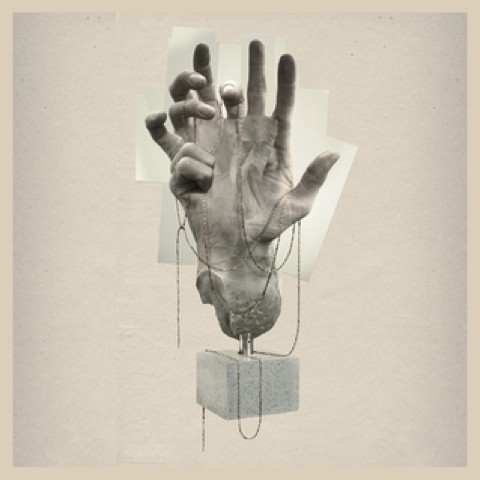The title of Mi Ami’s third LP, Decade, may be an attempt to put a cleanly inked period on leader Daniel Martin-McCormick’s last ten years, but, in truth, it’s been a scattered and tumultuous series of solo projects, breakups, and half-breakups on his road to Mi Ami’s latest outing. Prior to Mi Ami, McCormick fronted the infamous, short-lived post-hardcore group, Black Eyes, while solo projects, Sex Worker and Ital, have kept one foot in the realm of clearheaded dance music. The last time we saw Mi Ami, on 2011’s Dolphins EP, bassist Jacob Long had recently parted ways with McCormick and drummer Damon Palermo and the duo were making a hard left turn from primeval noise disco to watery, synth-driven electro. A lot has happened in the past ten years, but Decade has a difficult time reconciling what should be a triumphant summation with what can often feel like a breathless gasp of relief at the end of a lengthy marathon.
McCormick’s recent shifting of all gears toward samplers, synths, and drum machines hasn’t been at all ill-advised. His excellent Ital debut, Hive Mind, released last month, was a breakneck exercise in confrontational house with its lock-jawed anti-rhythms and aggressive fuckwithery, often sounding like McCormick had forcefully shoved his fingers into the mix to manipulate a spattering of primary-colored, hard-edged consonants. It propped him up next to matter-of-fact tech house artists like Theo Parish rather than the more-likely experimental noise-with-beats guys like Pete Swanson. It’s hard not to compare Decade to Hive Mind as it arrives so quickly on its heels, and the comparison isn’t completely unwarranted, having more in common with that record than with the Mi Ami found on Dolphins.
On Decade, there’s a compelling dirt-covered Italo disco foundation and a skeletal approach to melody and song craft that definitely works, but the record is kept from greatness by its gratuitous track lengths and compressed repetition. “Horns” intros beautifully with a wrinkled bed of sea-spray synthesizers and glassy, absent-minded piano before locking in with some thick, citrus-colored arpeggios and a squashed 4/4. McCormick sings, buried deep in the mix, while a tangle of upper-octave synths cartwheel and ooze downward. It’s kind of awesome for about six-minutes until the song shifts down to autopilot for the last three. “Time Of Love” is even better, a dubby mixture of shuttering voices and ominous, squabbling synths wrapped around an infectious, headlong disco bass line. But around the four minute mark the song’s delivered all its tricks and there’s still seven minutes on the clock. It’s another reason the Hive Mind comparison sheds an insightful light on the album in its proximity. McCormick justified the ten-plus minute tracks on his Ital debut by filling every second with a dizzying, unpredictable storm of sharpened-tooth textures, while Decade seems to run out of ideas long before each track is over.
There’s also an air of slightness to Decade‘s thirty-seven minutes. It’s not a very detailed arrangement and it sounds as if two people simply got together in a basement to jam on some synthesizers and drum machines for a weekend. The duo seem hard pressed to completely let go of the burning, mortal spontaneity that burst in eviscerating waves on Steal Your Face and Watersport, but they’ve instead found a sagging middle ground between those two records and the biting, direct-interface immediacy of Hive Mind. Decade is still more than listenable and often exciting (at least initially). It’s easy to imagine these songs playing well to a writhing crowd, but over time they ultimately slip out of focus and overstay their welcome.

